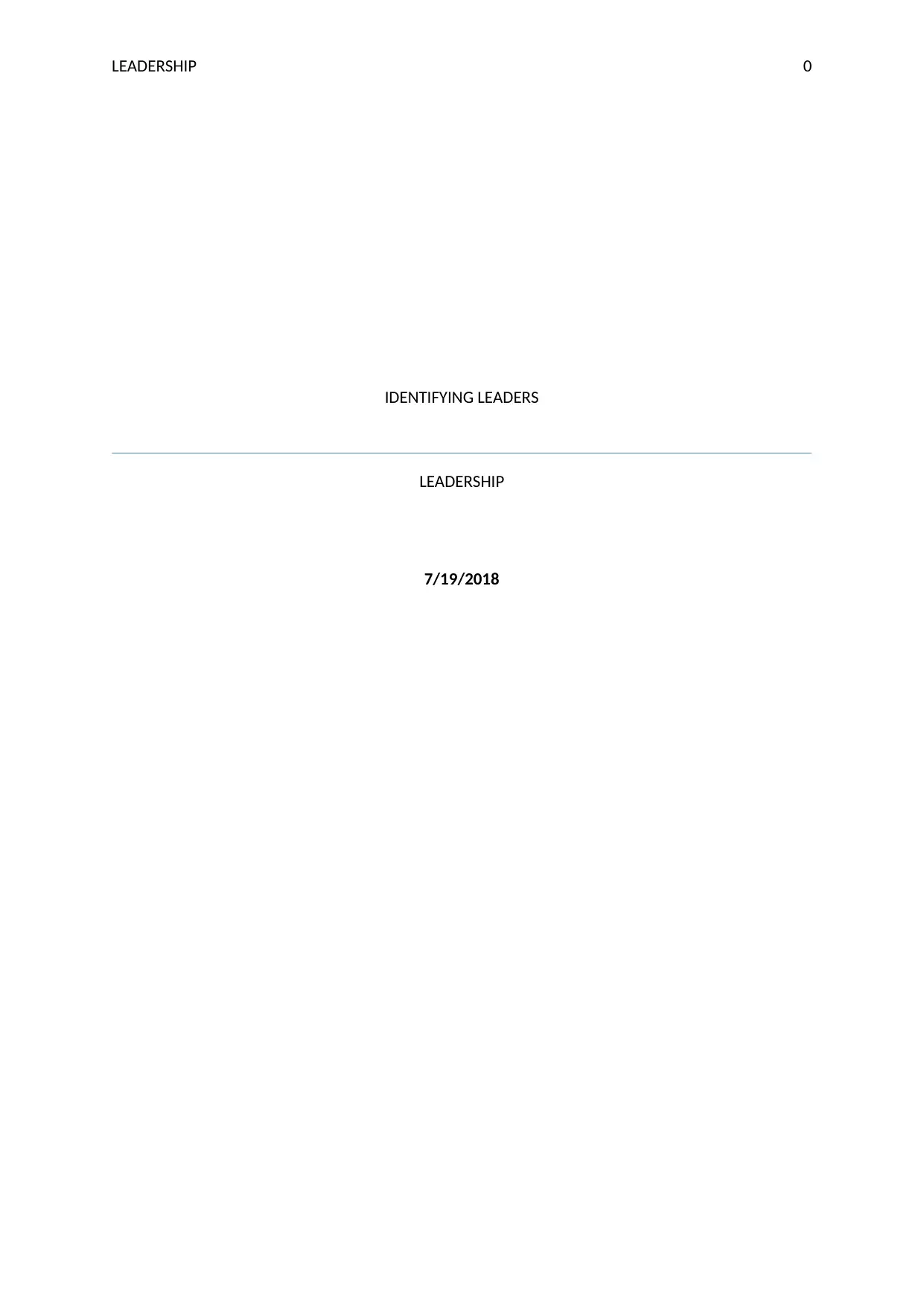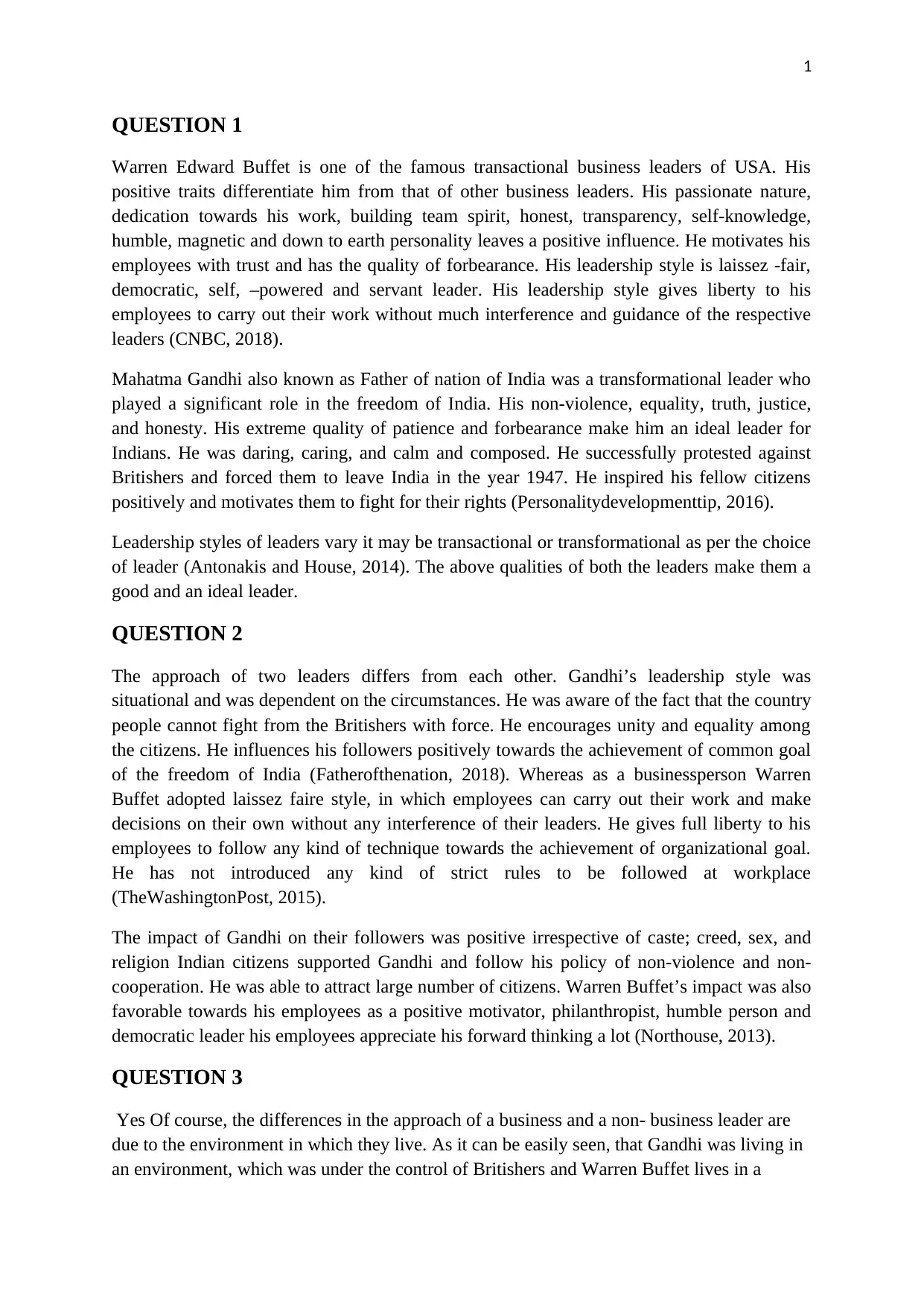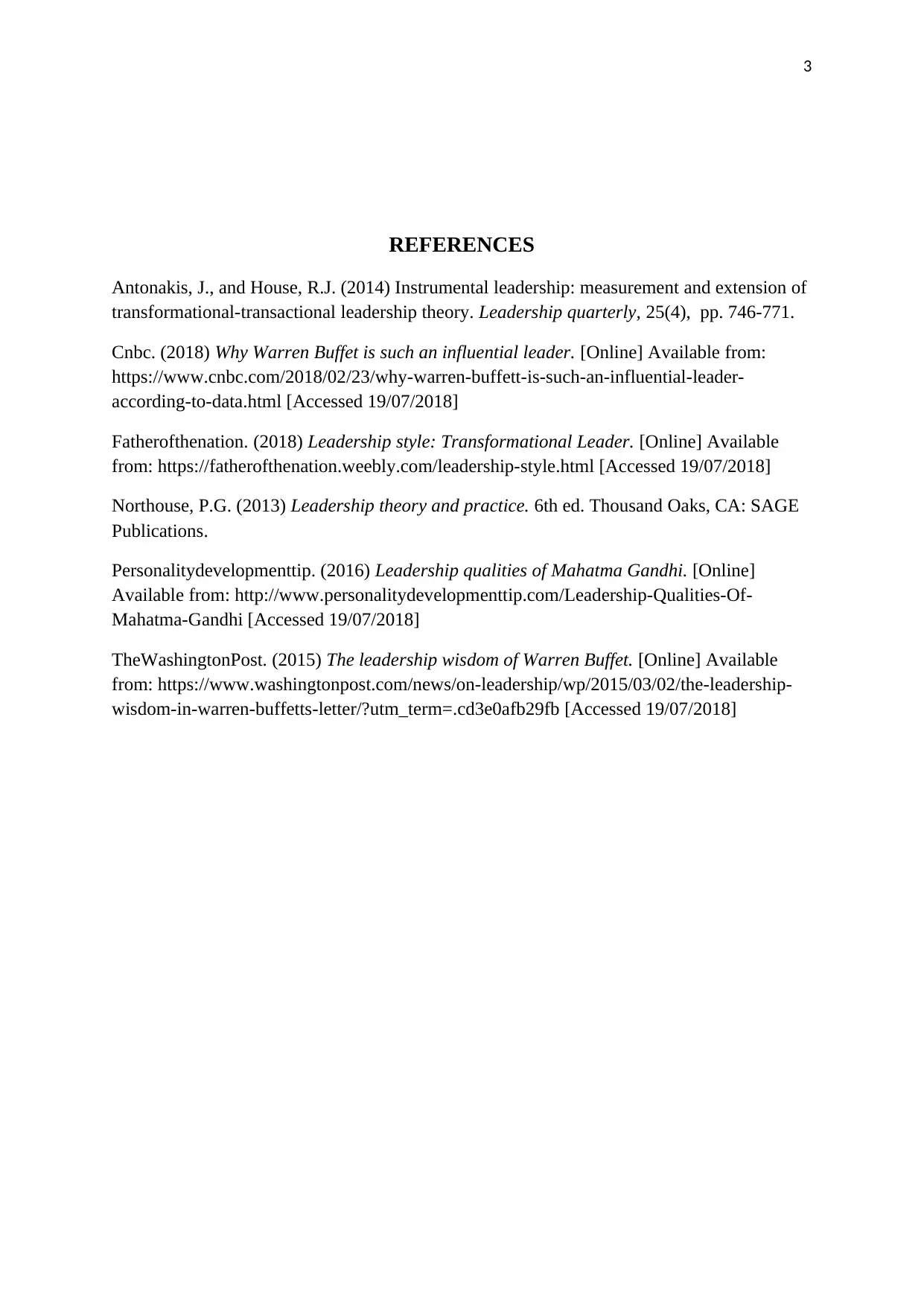Identifying Leaders and their Leadership Styles
VerifiedAdded on 2023/06/10
|4
|789
|488
AI Summary
This article discusses the leadership styles of Warren Buffet and Mahatma Gandhi, two famous leaders from different fields. It compares their leadership styles and the impact they had on their followers. The article also explores how the environment affects the leadership approach of a leader.
Contribute Materials
Your contribution can guide someone’s learning journey. Share your
documents today.
1 out of 4










![[object Object]](/_next/static/media/star-bottom.7253800d.svg)